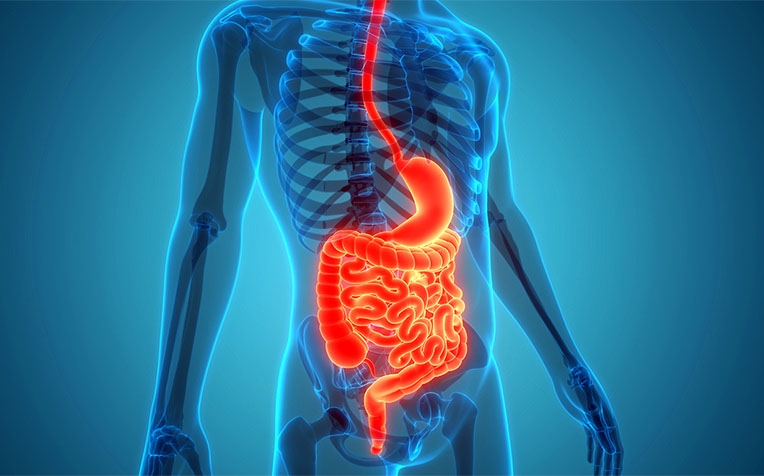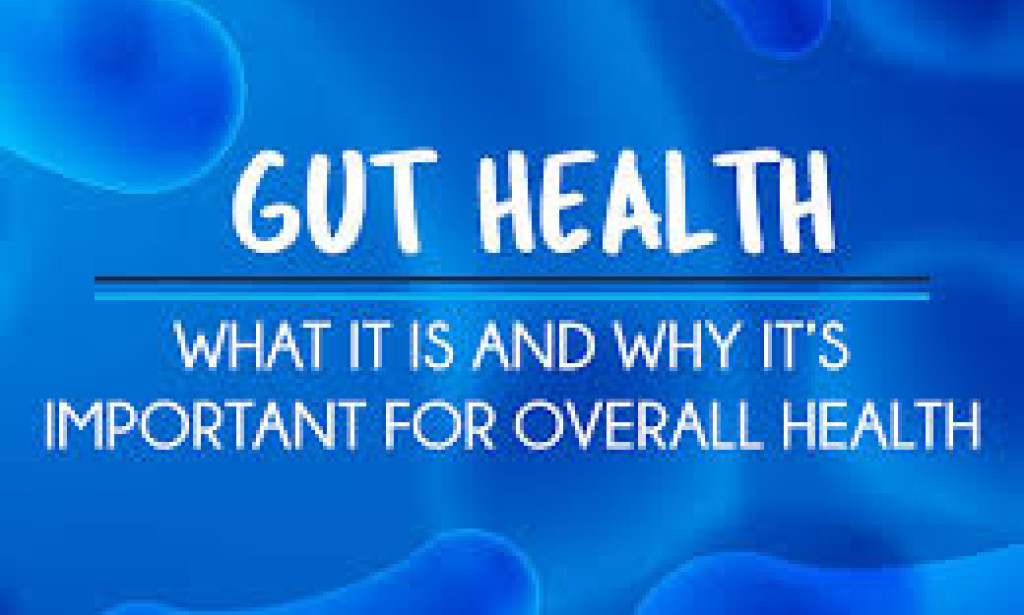INTRODUCTION:
Your digestive system is more than just the mechanism that breaks down food. It’s the foundation of your health, influencing everything from immune function to mental well-being. Maintaining a healthy gut is crucial for your overall vitality, yet many people underestimate its importance. This article delves into why gut health matters, how it affects your body, and practical tips for improving your digestive system.

1. The Gut as Your Second Brain
Your gut is often referred to as the "second brain" because of its significant role in mental health. The enteric nervous system (ENS), a network of neurons lining the gastrointestinal tract, communicates directly with the brain. This connection, known as the gut-brain axis, allows your gut to influence your mood, emotions, and even cognitive function.
Gut-Brain Connection Insights:
- Serotonin Production: About 90% of serotonin, the "feel-good" neurotransmitter, is produced in the gut. Imbalances in gut health can affect mood and lead to conditions like anxiety or depression.
- Cognitive Function: A healthy gut microbiome is linked to improved memory and concentration, while an unhealthy gut can contribute to brain fog.
2. Gut Health and Immunity
The gut is home to trillions of microbes, including bacteria, viruses, and fungi, which collectively form the gut microbiome. This microbiome plays a crucial role in protecting your body from harmful pathogens and supporting immune function.
How Gut Health Affects Immunity:
- Immune System Modulation: A balanced microbiome helps regulate immune responses, reducing the risk of infections, autoimmune conditions, and chronic inflammation.
- Gut Lining Protection: The gut lining, when healthy, acts as a barrier to toxins and harmful bacteria, preventing them from entering the bloodstream.
3. Digestion and Nutrient Absorption
Your digestive system is responsible for breaking down food into nutrients that the body can absorb. This process supports energy production, tissue repair, and the proper function of organs. A compromised digestive system can lead to nutrient deficiencies, digestive disorders, and other health problems.
Factors Affecting Digestion:
- Enzyme Production: Enzymes produced by the pancreas and gut lining break down food for easier nutrient absorption.
- Microbiome Balance: A diverse and healthy microbiome aids digestion by breaking down fiber and producing essential vitamins like vitamin K and certain B vitamins.
4. The Role of Fiber in Gut Health
Dietary fiber, found in fruits, vegetables, whole grains, and legumes, is a key player in maintaining gut health. It promotes healthy bowel movements, nourishes beneficial gut bacteria, and helps prevent constipation.
Benefits of Fiber for Gut Health:
- Prebiotics: Fiber acts as a prebiotic, feeding the beneficial bacteria in your gut.
- Regularity: Fiber helps prevent digestive issues like constipation by adding bulk to stool and aiding in its movement through the intestines.
- Gut Diversity: A fiber-rich diet encourages the growth of a diverse range of gut microbes, contributing to a healthier microbiome.
5. Probiotics and Gut Health
Probiotics are live beneficial bacteria that can enhance the health of your gut. These microorganisms help maintain or restore a healthy balance in your gut microbiome, improving digestion, immunity, and even mood.
Incorporating Probiotics Into Your Diet:
- Fermented Foods: Foods like yogurt, kefir, kimchi, sauerkraut, and miso are rich in probiotics.
- Supplementation: Probiotic supplements can be helpful, especially after antibiotics or during periods of digestive upset, but should be chosen carefully based on strains and potency.
6. The Impact of Diet on Gut Health
What you eat plays a significant role in the health of your digestive system. Diets high in processed foods, sugar, and unhealthy fats can disrupt the balance of your gut microbiome, leading to inflammation and digestive issues.
Gut-Healthy Eating Tips:
- Avoid Over-Processed Foods: Minimize the intake of sugary, fatty, and overly processed foods, which can promote harmful bacteria in the gut.
- Increase Plant-Based Foods: A diet rich in fruits, vegetables, nuts, seeds, and whole grains provides fiber and antioxidants that promote gut health.
- Stay Hydrated: Drinking enough water is essential for healthy digestion and the movement of food through the intestines.
7. Stress and Its Effect on Gut Health
Chronic stress can negatively impact your digestive system by disrupting the gut-brain axis. Stress hormones like cortisol can alter the balance of gut bacteria, increase gut permeability, and lead to digestive discomfort.

Managing Stress for a Healthy Gut:
- Mindfulness Practices: Meditation, yoga, and deep breathing can help reduce stress and support a balanced microbiome.
- Regular Exercise: Moderate physical activity can improve digestion, reduce stress, and support gut health.
- Sleep Quality: Ensuring you get enough rest is crucial for both mental health and gut health
Conclusion
Your digestive system is far more than just a process of breaking down food. It’s a complex system that impacts your immune function, mental well-being, and overall vitality. By taking steps to nourish and care for your gut, such as maintaining a balanced diet, managing stress, and incorporating probiotics, you can ensure that your digestive health supports your long-term well-being. A healthy gut is the cornerstone of a healthy body—treat it with care, and it will serve you well for years to come.


You must be logged in to post a comment.